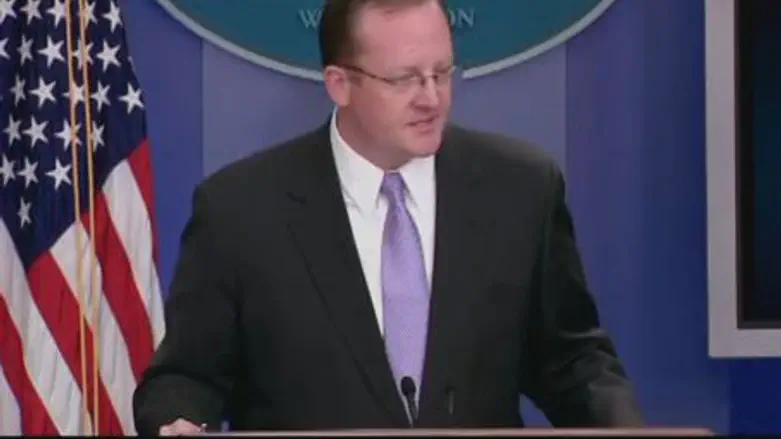
U.S. President Barack Obama is “concerned about the humanitarian situation in Gaza,” according to White House spokesman Robert Gibbs, who called it “an untenable situation” during a media briefing on Tuesday.
“I do think it's helpful to understand that this is a blockade to not allow weapons to get into the hands of Hamas,” Gibbs cautioned.
“And humanitarian aid,” said a reporter with some irony.
“And we have said that – well, I'll just leave it at that,” Gibbs responded courteously. “The president spoke on three occasions yesterday with Prime Minister Netanyahu, and obviously we regret that but understand completely why he went back to Israel and had to cancel the meeting (with the president).”
The June 9 meeting with Palestinian Authority Chairman Mahmoud Abbas, however, remains on track, Gibbs added. “And we think more than ever, we need a comprehensive Middle East peace plan.”
The White House press secretary also underscored the Obama administration's support for the United Nations Security Council's resolution calling for an investigation into the ambush by Muslim militants aboard one of the six ships in the Gaza-bound flotilla and the battle with Navy commandos, who killed nine militants.
“The resolution calls for a prompt and transparent investigation,” he said. “Obviously we are open to ways to assure a credible investigation, including international participation,” said Gibbs, who despite repeated heckling from reporters made it clear that Obama supported Israel's right to carry out the probe.
“I think it was a pretty clear statement by the international community,” he said pointedly.
“I wouldn't call it that,” responded a reporter. “I mean, it condemns acts that were taken that led to the loss of life, but it doesn't say whose acts. It could have been the flotilla's acts, or it could have been the IDF's acts. It's not clear from the statement... Whose acts are you talking about in that statement? Is it the IDF or is it the...?”
“Again, we're talking about a series of facts that will be determined by an appropriate investigation as I just said,” Gibbs answered.
“Okay, so there's no specificity as to whose acts it's condemning?” the reporter continued.
“Well, maybe you have information as to exactly how this went down that the rest of the international community may not be completely clear on, Jake.”
“Well, it looks like you don't even know what happened.”
“We can play circular ball all day long, Jake. Obviously we condemn the loss of life and we regret it deeply. I think that is knowable, correct?”
Long-time, elderly journalist Helen Thomas was even more direct, and less polite in her questioning.
“Our initial reaction to this flotilla massacre, deliberate massacre, an international crime, was pitiful,” she barked. “What do you mean you regret when something should be so strongly condemned? And if any other nation in the world had done it, we would have been up in arms. What is the sacrosanct, iron-clad relationship where a country that deliberately kills people and boycotts – and we aid and abet the boycott?”
Gibbs tried, in vain, to head her off. “Look, I think the initial reaction regretted the loss of life as we tried and still continue to try to gather the relevant … “
“Regret won't bring them back,” she stated flatly.
“Nothing can bring them back, Helen,” Gibbs responded in kind, finally. “We know that for sure, because I think if you could, that wouldn't be up for debate. We believe that a credible and transparent investigation has to look into the facts. And as I said earlier, we're open to international participation in that investigation.”
“Why did you think of it so late?” Thomas bounced back. “Why didn't you initially condemn it?”
“Again, I think the statements that were released speak directly to them,” Gibbs replied. He moved on to the next reporter, cutting off further questioning from Helen Thomas.